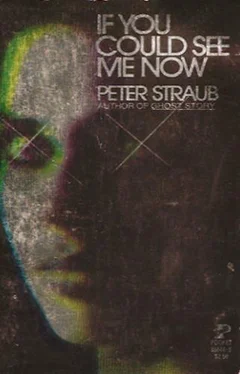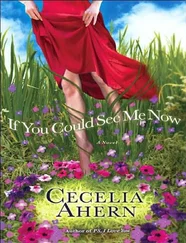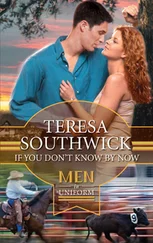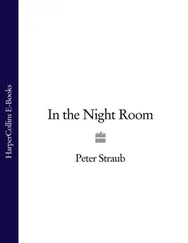I jumped down from the humped tangle of roots and, after struggling through another area of thick weeds, began to jog up through the next field. I could see the place where I thought the figure had slipped into the woods, and pushed myself up over a rise where alfalfa gave way to corn again. In a few minutes I was at the beginning of the trees.
They seemed sparser, less a thick homogeneous mass than they had appeared from the road. Moonlight made it possible for me to see where I was going once I had begun to run through the widely spaced trees. My feet encountered the edges of large rocks and the yielding softness of mold and beds of pine needles. As I ran deeper into the trees the impression of sparseness quickly diminished: the ghostly pines and birches slipped behind me, and I was moving between oaks and elms, veterans with rivered barks which blocked out nearly all the light. I came to a jog and then stopped, hearing an excited rustle of movement off to my left.
I turned my head in time to see a deer bounding for cover, lifting its haunches like a woman leaving a diving board.
Alison. I plunged blindly off to the right, hindered by my heavy boots. She had appeared to me, she had signaled. Somewhere, she was waiting for me. Somewhere deep in the darkness.
A long time later and after I entered a circle of trees, I admitted that I was lost. Not finally lost, because the slope of the forest’s floor told me which way the fields and the road were, but lost enough not to know if I had been circling. More disturbingly, after I had fallen and rolled against a lichen-covered boulder, I had become unsure of lateral direction. The woods were too dark for me to see farmhouse lights in the distance — in fact, distance did not seem to exist at all, except as an infinity of big close dark trees. I had edged my way into one clearing, perhaps half a mile back; but it may have been up , not back , and was at least some distance up, for I had come down the slope before going right again. All in all I thought I had been looking for nearly an hour, and the trees about me seemed familiar, as if I had been at this same spot before. It was only the little clearing, blackened at its center with the cold ashes of a fire, which proved I had gone, anywhere at all, and not turned and turned in the same place before the same trees until I was lost and dizzy.
Because, really, it did look familiar — the giant bulge of a trunk before me had been before me earlier, I had looked up at an identical thick curve of branch, I had knelt on an identical shattered log. I shouted my cousin’s name.
At that moment I had an essentially literary experience, brewed up out of Jack London and Hawthorne and Cooper and Disney cartoons and Shakespeare and the brothers Grimm, of panic which quickly passed into fear. The panic was at being lost, but the fear which rushed in after it was simply of the woods themselves, of giant alien nature. I mean that the trees seemed inhabited by threatening life. Malevolence surrounded me. Not just nature’s famous Darwinian indifference, but active actual hostility. It was the most primitive apprehension of evil I had ever known. I was a fragile human life on the verge of being crushed by immense forces, by forces of huge and impersonal evil. Alison was a part of this; she had drawn me in. I knew that if I did not move, I would be snatched by awful twigged hands, I would be shredded against stones and branches, my mouth and eyes filled with moss. I would die as the two girls had died. Lichen would pack my mouth. How foolish we had been to assume that mere human beings had killed the girls!
From this frozen encounter with spirit it was terror that finally released me, and I ran blindly, plungingly, in any direction I could find — in far greater fear than I had run from the hooligans in Arden. Low branches caught my stomach and brought me crashing down, rocks skittered under my slippery feet, twigs clutched at my trousers. Low leaves rustled at my eyes. I was just running, glad for running, and my heart whooped and my lungs caught at breath.
I fell many times. The last time, I peered up through creepers and nettles and saw that the malevolence had gone; the god had departed; human light was darting into the vegetation, the light which represents our conquering of unreason, and I brought my body complaining up into a squatting position to see from where the light was coming. I could feel Alison’s letter in my pocket. My personality began to reassemble. Artificial light is a poem to reasonableness, the lightbulb casts out demons, it speaks in rhymed couplets, and my body began to shake with relief, as if I had stumbled into the formal gardens of Versailles.
Even my normal cast of mind returned to me, and I regretted my momentary betrayal of belief. It was betrayal of Alison and betrayal of spirit. I had been spooked, and spooked by literature at that.
As this specific Teagardenish guilt whispered through me, I finally saw where I was and knew the house from which light fell. Yet my body still trembled with relief when I made it stand and walk through the domesticated oaks.
She appeared on the porch. The sleeves of a man’s tweed jacket hung below the tips of her fingers. She was still wearing the high rubber boots. “Who is that out there? Miles? Is that you?”
“Well, yes,” I said. “I got lost.”
“Are you alone?”
“You’re always asking me that.”
“But I heard two of you.”
I just stared at her.
“Come on in, Miles, and I’ll pour you some coffee.”
When I came up on the porch she scrutinized me with her good eye. “Why, Miles, you’re in a terrible condition! You’re all over dirt. And you’ve torn your clothes.” She looked down “And you’ll have to take off those boots before you can come; into my kitchen.”
Gently I removed the mud-laden boots. I was aware of numerous small aches and sores on my face and hands, and I had somewhere banged my leg in the same place I had when I had accompanied the chair down the stairs of the root cellar.
“Why, you’re limping, Miles! What were you doing out there at night?”
I lowered myself into a chair and she placed a cup before me. “Auntie Rinn, are you sure you heard someone else in the woods? Someone besides me?”
“It was probably one of the chickens. They do get out and make an awful ruckus.” She was sitting poised on a chair across the old wooden table from me, her long white hair falling to the shoulders of the gray tweed jacket. Steam from the cups rose wispily between us. “Let me take care of your face.”
“Please don’t bother,” I said, but she had already bounced up and was at the sink, dampening a cloth. Then she took a covered pot from a shelf and returned. The cloth was cool and soothing against my cheekbones.
“I don’t like saying this to you, Miles, but I think you should leave the valley. You were troubled when you first came here, and you are more troubled now. If you will insist on staying, I want you to leave Jessie’s house and come to stay here.”
“I can’t.”
She dipped her fingers in the pot and dabbed a thick green mixture on my cuts. It made my entire face throb. A woodsy fragrance snagged in my nostrils. “This is just an herbal mixture for your cuts, Miles. What were you doing out there?”
“Looking for someone.”
“Looking for something in the woods at night?”
“Ah, yes, someone broke most of the glass on my car and I thought I saw them running up this way.”
“Why were you trembling?”
“I’m not used to running.” Her fingers were still rubbing the green mixture into my face.
“I can protect you, Miles.”
“I don’t need protection.”
“Then why were you so frightened?”
“It was just the woods. The darkness.”
Читать дальше












